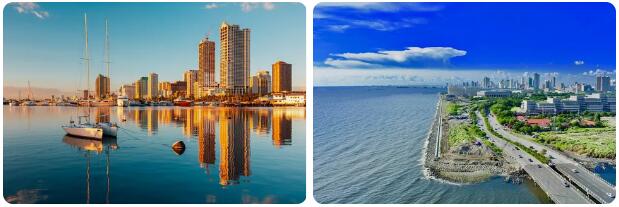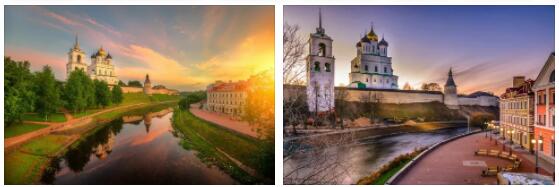Saudi Arabia 2006
In 2006, Saudi Arabia was a major regional power in the Middle East. It had an estimated population of around 24 million people, with the majority being of Arab descent. According to constructmaterials, Saudi Arabia boasted many attractions such as stunning deserts, ancient mosques, and historical sites. In terms of politics and economics, Saudi Arabia was an absolute monarchy with a powerful ruling family. The economy relied heavily on its exports to other countries such as China and the United States. Despite its poverty levels and lack of economic development in certain areas, the country had a strong sense of national pride that contributed to its unique identity. In 2006, Saudi Arabia was home to many different cultures that coexisted peacefully with each other. This cultural diversity added to its appeal as an attractive destination for tourists from around the world. All in all, Saudi Arabia was an amazing place to visit in 2006 and offered something special to everyone who visited it.
Yearbook 2006
Saudi Arabia. According to CountryAAH, major public holidays in Saudi Arabia include Independence Day (September 23) and New Year (January 1). King Abdullah visited China, India, Pakistan and Malaysia at the end of January. It was his first trip outside the Middle East since he became king in August 2005, and the first time a Saudi king visited China since the countries established diplomatic relations in 1990. China’s President Hu Jintao made a response visit in April and signed an oil exploration and security agreement.
In April, it was reported that Saudi Arabia would bid to erect a fence along the Iraq border.
Saudi Arabia was reported in August to have decided to buy 72 Eurofighter fighter aircraft from a European consortium that included Germany, Italy, Spain and the United Kingdom.
During the year, security forces were reported to have clashed with suspected militant Islamists who were allegedly supporting the al-Qaeda terror network. In February, for example, a suspected suicide attack against the large oil refinery Abqaiq in the eastern province was averted. At the end of March, the government announced that 40 suspected al-Qaeda members had been arrested at various locations in Saudi Arabia, including the capital Riyadh. Eight were allegedly linked to the group that planned the attack on the Abqaiq facility. At the beginning of December, the Ministry of the Interior stated that 136 suspected al-Qaeda members had been arrested by various strikes since September. Most of the arrested were said to be Saudi.
In December, Saudi Arabia’s US ambassador, Prince Turki al-Faisal, unexpectedly resigned after 15 months on the post. He traveled back to Saudi Arabia and was seen as a possible successor to his brother, Prince Saud al-Faisal, as Foreign Minister. Prince Saud’s health has been fragile.
In January, 364 pilgrims were trampled to death and another 60 were injured when panic ensued at Satan’s stoning, one of the rituals of the annual Muslim pilgrimage. The incident occurred outside the city of Mina. A few days earlier, 76 people were killed when a hotel in Mecca collapsed.
In early October, the regime executed journalist Jamal Khashoggi at its consulate in Istanbul. Khashoggi had gone into exile in the United States in September 2017 after the Riyadh regime closed his Twitter account. Khashoggi was increasingly writing critical articles on Crown Prince Mohamad bin Salman and the regime therefore sent an execution unit to Istanbul at the beginning of October. Khashoggi had a Turkish boyfriend he wanted to marry, and therefore had to go to the consulate. The execution would never have become an international event if it were not just for Turkey’s rivalry with Saudi Arabia for leadership over the Muslim world. On the same day Khashoggi had been killed, Turkish President Erdogan therefore went into the media with the story. Not because of the president’s love for journalists. Thousands of Turkish journalists had been dismissed by the Erdogan regime in previous years, hundreds more jailed and many newspapers closed. The murder was an occasion to bring the geopolitical opponent into the defensive. Each day brought new dementias from the Saudi dictatorship, which simply triggered new details from the Turkish dictatorship. Details that could only stem from eavesdropping and/or a spy Turkey had planted at the Saudi Consulate. Only after several weeks of denial did the Riyadh regime admit that it had murdered the journalist, and a group of 15 senior military people and “forensics” closely linked to the crown prince were arrested in Saudi Arabia. Turkey had a covert recording of the assassination and subsequent parting of the journalist, which was not made public, but instead extradited to Turkey’s allies. It was not Saudi Arabia’s unlawful war against Yemen that exposed 18 million. Yeminites for famine that put arms boycott of Saudi Arabia on the political agenda, but the assassination of Khashoggi. In November, Turkey’s tape recording was played for the CIA, which subsequently concluded that bin Salman was covered by diplomatic immunity. Meanwhile, Saudi Arabia had stepped up the war against Yemen to gain control of the port city of Hodaidah, which was the only supply route for the starving population. In late November, Saudi Arabia, along with the United States, prevented the UN Security Council from calling for fighting to stop. The Saudi regime threatened otherwise not to participate in peace talks with Yemen in Stockholm. (The Saudi regime threatened otherwise not to participate in peace talks with Yemen in Stockholm.
The West has executed political opponents at home and abroad for hundreds of years, but most often has been able to control the media and therefore covered its crimes. It failed for Saudi Arabia, which was exhibited as the brutal medieval regime it has been for almost 100 years, while exhibiting the hypocrisy of the West. The Saudi regime as a trading partner was more important to the West than its global human rights violations.
In February 2019, a British House of Commons committee issued a report on Britain’s arms sales to Saudi Arabia for use in the country’s war against Yemen. The report knew the sale was illegal. In June 2019, an appeals court issued a similar order. Already in 2016, a number of British ministers: Boris Johnson, Jeremy Hunt and Liam Fox made a secret but at the same time illegal decision to sell British weapons to Saudi Arabia. The country has since sold for $ 4.9 billion. £ arms to the country. The three ministers and Britain thus have a joint responsibility for Saudi Arabia’s war crimes and could be convicted by the ICC. Already in February, Congress in the United States decided to halt US arms sales to the Saudis. President Trump vetoed a resolution. He himself has great financial interests in Saudi Arabia. The president’s veto can be overturned if 2/3 of Congress votes for it, but even though several Republicans subsequently voted for a gun ban, it did not reach a 2/3 majority.






